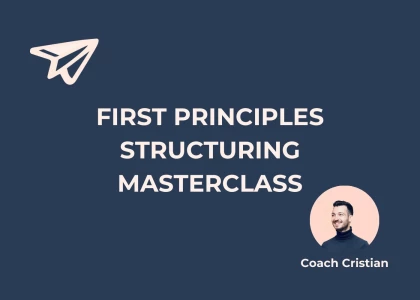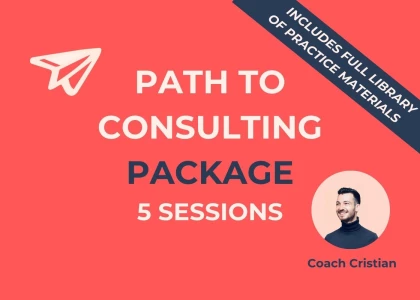2-hour Workshop
Did you know that most consulting firms often use stakeholder-based questions? How do you distinguish between exploratory and prescriptive structures? Which cases require hypothesis-led structures and which should start with a broad approach? What's the one word 90% of candidates use and are immediately labelled as 'average'?
Structuring is what most candidates struggle with. It's also the first skill that fresh consultants need to learn to master. However, there are no good resources to teach it.
If you're relying on books from ten years ago, you're likely in trouble. Consulting firms have changed their case types and expectations in the meantime. If you're relying on online classes, at best, you can be average. But being average in a tough market often means losing. You have to aspire for distinctiveness to have the certainty of options. By now, you have a better chance of passing an interview if you go without learning frameworks, rather than telling the interviewer you're going to look into 'customer, company, competition...'
The alternative is doing what great consultants do: first principles thinking.
It's what Elon Musk does. Or what Aristotle used to preach. It's the raw skill of questioning every assumption and building a solution from scratch.
It doesn't involve memorizing. It involves a paradigm change and the practice to cement it.
This class is about that.
Structuring and storylining were the areas I used to receive 'distinctive' feedback in when in McKinsey, and this 2-hour class is my attempt to instill the same in you. One-on-one. It's the methodology I teach all my candidates and why they regularly receive positive feedback on their structuring.
But the best part about this class is not that it helps you pass the interview, but that it lays the foundation for you to be a distinctive consultant once you start. It's a long-term investment that could trigger your first early promotion.



